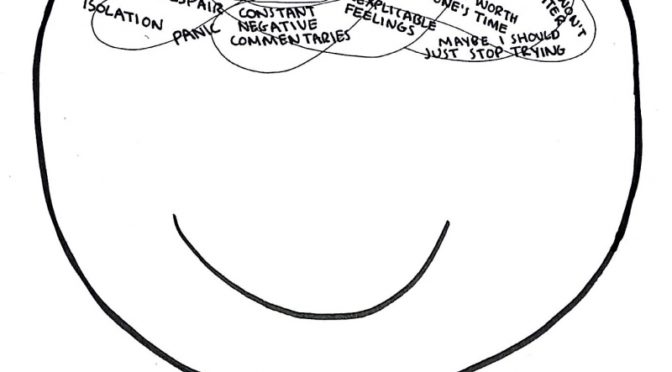How to Navigate Through Life When You Suffer From Attention Deficit Hyperactivity Disorder (ADHD) and Attention Deficit Disorder (ADD)
Posted by Collaborative Counseling

Attention deficit hyperactivity disorder (ADHD) and attention deficit disorder (ADD) are neurodevelopmental disorders that can cause difficulty with attention, hyperactivity, and impulsivity. These disorders can impact many areas of life, including school, work, relationships, and overall well-being.
While there is no cure for ADHD or ADD, there are many effective treatments available. Treatment typically involves a combination of medication, therapy, and lifestyle changes. With the right treatment, people with ADHD or ADD can live full and productive lives.
Here are some tips for navigating through life with ADHD or ADD:
- Get diagnosed and treated. The first step to managing ADHD or ADD is to get diagnosed by a qualified healthcare professional. Once you have a diagnosis, you can work with your doctor to develop a treatment plan that is right for you.
- Take medication, if needed. Medication can be an effective way to manage the symptoms of ADHD or ADD. If you are taking medication, it is important to take it as prescribed by your doctor.
- Get therapy. Therapy can help you learn how to manage your ADHD or ADD symptoms and develop coping skills. There are many different types of therapy that can be helpful for people with ADHD or ADD, such as cognitive-behavioral therapy (CBT) and mindfulness-based stress reduction (MBSR).
- Make lifestyle changes. There are a number of lifestyle changes that can help you manage your ADHD or ADD symptoms. These changes may include getting regular exercise, eating a healthy diet, getting enough sleep, and avoiding caffeine and alcohol.
- Find a support system. Having a support system of friends, family, and other people with ADHD or ADD can be invaluable. Talking to others who understand what you are going through can help you feel less alone and more empowered to manage your condition.
Navigating through life with ADHD or ADD can be challenging, but it is possible to live a full and productive life. By getting diagnosed and treated, getting therapy, making lifestyle changes, and finding a support system, you can manage your symptoms and live a happy and fulfilling life.
Here are some additional tips that may be helpful for people with ADHD or ADD:
- Set realistic goals. When you have ADHD or ADD, it can be easy to get overwhelmed by tasks. Break down large tasks into smaller, more manageable steps.
- Reward yourself for your accomplishments. When you reach a goal, take some time to celebrate your success. This will help you stay motivated and on track.
- Don’t be afraid to ask for help. If you are struggling, don’t be afraid to ask for help from a friend, family member, therapist, or other professional.
- Learn to forgive yourself. Everyone makes mistakes. When you make a mistake, don’t dwell on it. Learn from your mistake and move on.
Living with ADHD or ADD can be challenging, but it is also an opportunity to learn and grow. By following these tips, you can manage your symptoms and live a happy and fulfilling life.
Read More
 View Our Locations
View Our Locations Request Appointment
Request Appointment



